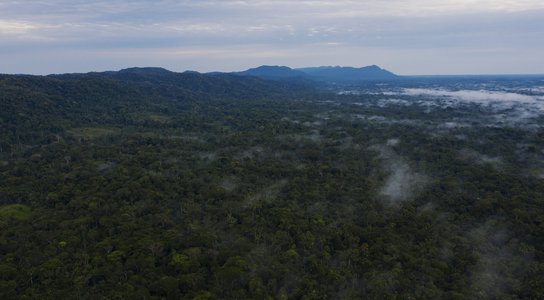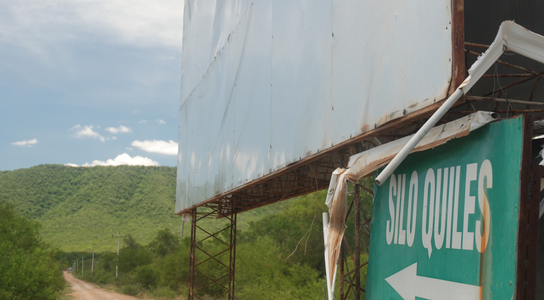Our investigation Beef, Banks and the Brazilian Amazon exposed Marfrig’s conduct in the Brazilian Amazon and its links to environmental destruction. Now Norway's Norges Bank is threatening to divest from the Brazilian beef giant over its links deforestation. Has the time come for other big investors to follow suit?
It claims to be the world’s second-biggest beef
company, with 32,000 workers and a net revenue in 2020 of more than US$12 billion. But now Brazilian beef giant Marfrig has been placed under observation by the
Norwegian Government’s pension fund (managed by Norges Bank Investment
Management), one of its investors.
The powerhouse fund found there was “a risk that the company contributes to serious environmental damage”. Its decision means if the company does not change and reform, the fund may exclude it from any investment.
Global Witness believes that, while we await much-needed legislation to prevent the funding of forest-destructive agribusiness, it’s time other big investors followed suit, beginning divestment proceedings.
Marfrig’s history of Amazon deforestation
At COP26, Marfrig signed onto a high-profile statement claiming it had a “shared commitment to halting forest loss associated with agricultural commodity production and trade”. But the facts suggest otherwise. Indeed, for those of us who’ve followed Marfrig’s conduct in the Brazilian Amazon, the company’s links to environmental destruction comes as no surprise. The only shock was that their statement of commitment was taken seriously enough to feature as one of COP26’s official ‘outcomes’.
Global Witness’s 2020 investigation Beef, Banks and the Brazilian Amazon – cited by the pension fund in its decision – revealed Marfrig’s business model has led to widespread destruction of the rainforest. Our investigation found one Marfrig slaughterhouse in the Brazilian state of Pará alone purchased cattle from 89 ranches responsible for some 3,300 hectares of illegal deforestation.
Our analysis also found that 1,160 ranches further down Marfrig’s supply chain contained more than 34,000 hectares of deforestation. Marfrig denied all the allegations – but Global Witness is just one of a host of NGOs to have called out its environmental footprint.
The decision was made by Norges Bank’s Council on Ethics. The council studied cattle purchases Marfrig made across Brazil between 2016 and 2019 from ranches embargoed by Brazilian authorities for illegal deforestation. Both direct and indirect suppliers were considered.
After analysing the same slaughterhouse investigated by Global Witness in 2020, the council said it “stands out for having a higher proportion of embargoed properties among its direct suppliers than indirect suppliers”. The investigation revealed up to three per cent of Marfrig’s purchases in the period could be traced back to embargoed ranches.
As the report highlights, only a small share of rural properties responsible for illegal deforestation end up being embargoed. This being the case, the council concluded the “risk of deforestation in Marfrig’s supply chain is far higher than the survey indicates”.
Could this be a tipping point for Marfrig’s financial backers?
The Norwegian pension fund is not the only financial player investing in Marfrig. As our investigations have documented repeatedly, household names like HSBC, Santander, BNP Paribas, ING Bank, JP Morgan and Morgan Stanley are among the major financial institutions to have financed the company in recent years.
Given that the Norwegian Government Pension Fund Global is one of the biggest funds in the world and controls over US$1.2 trillion worth of assets, its decision is significant and should send a powerful message to Marfrig and other investors that their continued links to environmental destruction are a liability.
Systemic problem
But Marfrig is not a single bad apple – instead it is among a whole host of destructive agribusinesses that are enabling the destruction of the world’s climate-critical forests. They rake in huge revenues for themselves and their financial backers in the process.
Another recent Global Witness investigation revealed the global scale of the problem. Top global banks and investors headquartered in the UK, EU, US and China financed 20 of the worst agribusiness firms linked to tropical deforestation to the tune of $157 billion in the five years following the Paris Climate Agreement. They included Marfrig.
For too long, the financial sector has bankrolled firms guilty of deforestation with few questions asked. If Global Witness and Norges Bank can undertake analyses exposing agribusinesses like Marfrig’s links to deforestation, there is no excuse for major financial institutions failing to invest in due diligence or ignoring the risks. As it happens, in these banks would not even have needed to do their own ESG checks - as we have informed them of Marfrig’s reckless activities for years. Why are they ignoring the evidence Global Witness and other NGOs send them?
Sadly, waiting for financial institutions to do the responsible thing by divesting - as we hope Norges Bank will - is proving too slow a process. Climate critical forests are shrinking. While we hope other investors will join Norway, legislation is needed. Only mandatory due diligence checks on deforestation for banks and investors in major financial hubs like the US, UK and EU - with penalties for failure to do so - will have the impact needed. Then companies like Marfrig will find their destruction of the earth’s rapidly diminishing rainforests is no longer financially viable.
Author
-
Marco Mantovani
Amazon Forest Consultant


